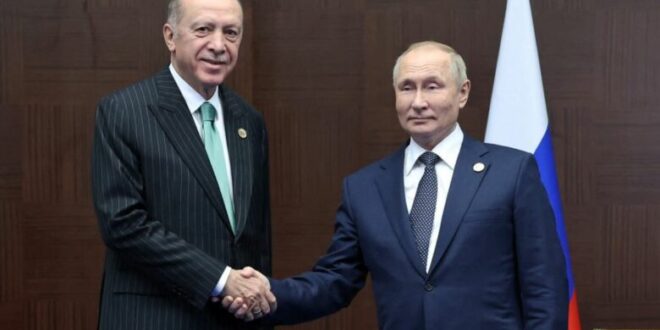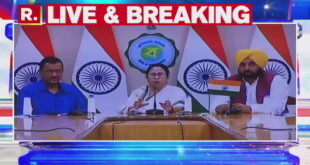ANKARA, Turkey – The North Atlantic Treaty Organization (NATO) has been facing a significant obstacle in expanding its presence in the Black Sea region. Turkey, a member of the alliance, has been opposing NATO’s expansion plans citing concerns over security and stability in the region. The situation has raised concerns that Russia could exploit Turkey’s stance and use it as propaganda to weaken NATO.
The conflict between NATO and Turkey stems from the alliance’s desire to establish a permanent naval base in the Black Sea. The move is in response to Russia’s growing military presence in the region, including the annexation of Crimea in 2014. NATO’s expansion plan is part of a broader effort to counter Russian aggression in the region.
However, Turkey has opposed the plan, warning that it could lead to a military escalation and a “disastrous outcome.” Turkish President Recep Tayyip Erdogan has called for a diplomatic solution to the dispute, but his opposition has raised concerns among NATO members and experts.
Analysts warn that Turkey’s stance on NATO’s expansion could play into the hands of Russian President Vladimir Putin and allow him to exploit the situation for his propaganda purposes. Michael Kofman, a Russia expert at the CNA think tank, said, “Putin would love to see NATO fall apart, and Turkey’s opposition to its expansion plans could be a gift for him.” The situation also comes when Russia seeks to expand its influence in the Middle East and North Africa. Analysts warn that Turkey’s opposition could push other countries in the region closer to Russia and undermine NATO’s efforts to counter Moscow’s aggressive behavior.
Ozgur Unluhisarcikli, director of the Ankara office of the German Marshall Fund, said, “If Turkey continues to block NATO’s expansion plans, it could push other countries in the region closer to Russia.”
NATO officials have sought to downplay the conflict with Turkey, saying they are committed to finding a diplomatic solution that addresses Turkey’s concerns while advancing the alliance’s goals. “Turkey is a valued ally of NATO, and we will continue to work with them to find
a way forward,” said NATO Secretary-General Jens Stoltenberg.
The situation between Turkey and NATO highlights the growing tensions between the alliance and Russia and the challenges facing NATO as it seeks to counter Moscow’s aggressive behavior in the region. Experts warn that if NATO fails to find a diplomatic solution to the conflict
with Turkey, it could weaken the alliance and give Putin a propaganda coup. The situation also raises questions about the future of Turkey’s relationship with NATO.
Turkey has been a member of the alliance since 1952 and has played a key role in many operations. However, the conflict over the Black Sea region is the latest in a series of disputes between Turkey and NATO, including Turkey’s purchase of Russian missile systems and its
military operations in Syria.
Experts warn that if the conflict with Turkey continues, it could lead to a broader rift within the alliance and weaken NATO’s ability to counter Russia’s aggressive behavior. NATO will need to find a way to address Turkey’s concerns while also advancing its strategic goals if it hopes to
maintain its relevance in the face of growing Russian aggression in the region.
 India One News
India One News





